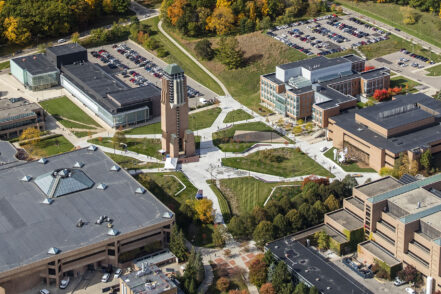Problems with violations of various labor standards, including local wage and leave policies, are part of a general, and potentially increasing phenomenon of ‘precarious employment.’ Precarity is a multifaceted concept that includes inadequate benefits, social protections, work hazards, as well as the exploitation of workers from ‘vulnerable populations,’ including those with limited economic and social […]
Read More… from Understanding the Needs of Precarious Workers in Tacoma
Much of Tacoma’s appeal comes from the uniqueness and spirit of our neighborhoods. As the lifeblood of the city, it is vital that we continue to provide support and seek out opportunities and projects that make the places people live better. A pathway to make good decisions is an analytic tool, which will be used […]
Read More… from Neighborhood Health Livability Indicators
Graduate students in the course Health Communication Campaigns in the College of Public Health created campaigns around the topic of mental health for four distinct population segments in Fairfield and Jefferson County. Read the final student report delivered to the local gov/community partner. Iowa Initiative for Sustainable Communities Contact Info University Faculty Contact Shelly Campo […]
Read More… from Jefferson County Public Health Campaigns for Mental Health
Graduate students in the course Health Communications Campaigns in the College of Public Health developed campaigns for the Mason City community that address issues related to the increasing proportion of older residents in the community. Read the final student report delivered to the local gov/community partner. Iowa Initiative for Sustainable Communities Contact Info University Faculty […]
Read More… from Aging In Place Public Health Campaigns
Graduate students in the College of Public Health developed a public health campaign for the Mason City’s North End neighborhood to combat negative perceptions in order to improve residents’ health and well-being. Read the final student report delivered to the local gov/community partner. Iowa Initiative for Sustainable Communities Contact Info University Faculty Contact Shelly Campo […]
Read More… from Mason City North End Neighborhood Public Health Campaign
Graduate students in the College of Public Health worked with the Cedar Rapids Blue Zones Project™ staff to enhance engagement with the Blue Zones Project™ among target demographics in Cedar Rapids. In particular, students worked to target high school students, aging populations, and faith-based organizations around particular Blue Zones Project™ initiatives like walking MOAIs (groups […]
Read More… from Health Campaign Promoting Community-Building with MOAIs for the Blue Zones Projects
Graduate students in the College of Public Health developed health intervention projects that focused on reductions in childhood obesity through behavior change counseling. Students worked with organizations in Muscatine such as the YMCA, Sunset Park After School Program, and local preschools. Read the final student report delivered to the local gov/community partner. Iowa Initiative for […]
Read More… from Children’s Nutrition Strategies and Interventions
Assess the impact of Brooklyn Park’s 2010 Community Engagement Initiative. Read the final student report delivered to the local gov/community partner. Resilient Communities Project Contact Info University Faculty Contact Keith Horvath Public Health Local Government / Community Contact Josie Shardlow Community Engagement Coordinator, City of Brooklyn Park […]
Read More… from Evaluation of the City’s Community Engagement Initiative

There is no excerpt because this is a protected post.

UniverCity Year Website | univercity.wisc.eduTwitter | @UWUniverCity Newsletter | Subscribe Here UniverCity Year is a three-phase partnership between UW-Madison and one community in Wisconsin. The concept is simple. The community partner identifies projects that would benefit from UW-Madison expertise. Faculty from across the university incorporate these projects into their courses, and UniverCity Year staff provide […]
Read More… from University of Wisconsin

